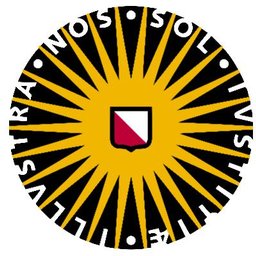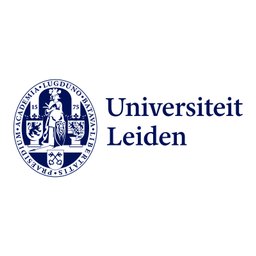The functioning of AI often requires human labour (data work). In Europe, millions of people do this work at home through online platforms. The work is presented in small tasks: transcribing text, annotating data, labelling images. This work is poorly paid and unregulated. The European Commission has made a Directive to regulate platform work. To make the proposed regulations as effective as possible, this research examines the concerns and needs of data workers themselves and how these can be translated into effective policies, in which the working conditions are of primary concern.
Your job
Because data work is generally performed alone at home, this work is particularly invisible, which renders workers even more vulnerable to unfair employment practices. This has severe consequences for the way their concerns and needs are taken into account while new EU policy directives about platform work are implemented. Indeed, the recent EU Directive aimed at regulating all digital labour platforms focusses almost entirely on the needs of on-location platform workers. Those we see in our streets and in the media, such as ride hailing through Uber or meal delivery through Deliveroo. However, we know much less about the specific practices and worker vulnerabilities of online platform work. Therefore, the focus of this research project is on data workers’ working conditions and how these can be improved through policy. More specifically, the overarching research question is: How can the working conditions of data workers be improved by policy measures?
Digital platform work is characterised by flexible work conditions, the use of algorithmic management to coordinate work, and a lack of labour protections. But these conditions do not affect all platform workers equally: research shows that workers who rely principally on platform earnings are more vulnerable than those who have other jobs and who use platforms to supplement their other income (Dunn, 2020; Ravenelle, 2019; Schor et al., 2020). For data workers, this is also true: The more dependent data workers are on this labour for their income, the more precarious their situation (Gray & Suri, 2019; Joyce, et al., 2020). This research will illuminate the world of data work and identify policy measures to help protect data workers, specifically those who are most dependent on platform work for their livelihood. It also prioritises learning from data workers themselves about the measures they wish to see implemented. Consequently, this project has three aims and three related subprojects:
- to investigate the concerns and needs of data workers in Europe (interviews with workers);
- to evaluate whether policy measures can address data workers’ concerns and needs (interviews with policy makers and experts); and
- to study which possible policy measures would be most valued by data workers (survey vignette study among data workers).
You will be part of a team that is studying data work from different angles and disciplines, as part of the Ghost Work research consortium.
Your tasks include the following:
- conducting the three aforementioned studies (interviews with data workers and policymakers, and the vignette study);
- reporting and publishing the three studies in scientific journals;
- presenting the studies at workshops and conferences;
- co-organising a seminar for academics, policymakers, and data workers.
Your qualities
You have multiple of the following qualifications:
- a PhD in communication science, organisational psychology, sociology, public administration, or a similar field;
- affinity with (research on) decent work, digital work, labour regulations, platform work;
- affinity with interdisciplinary research;
- an interest in talking with workers and the communication skills to guide a conversation about their needs and concerns;
- demonstrable experience with conducting and analysing interviews and questionnaires;
- experience with publishing in scientific journals;
- excellent speaking and writing skills in English;
- the ability to work independently as well as in a team.
Our offer
- A position for 24 months;
- a working week of 38 hours and a gross monthly salary of €4,227 (salary scale 10.5 under the Collective Labour Agreement for Dutch Universities (CAO NU));
- 8% holiday pay and 8.3% year-end bonus;
- a pension scheme, partially paid parental leave and flexible terms of employment based on the CAO NU.
In addition to the terms of employment laid down in the CAO NU, Utrecht University has a number of schemes and facilities of its own for employees. This includes schemes facilitating professional development, leave schemes and schemes for sports and cultural activities, as well as discounts on software and other IT products. We also offer access to additional employee benefits through our Terms of Employment Options Model. In this way, we encourage our employees to continue to invest in their growth. For more information, please visit Working at Utrecht University.
About us
A better future for everyone. This ambition motivates our scientists in executing their leading research and inspiring teaching. At Utrecht University, the various disciplines collaborate intensively towards major strategic themes. Our focus is on Dynamics of Youth, Institutions for Open Societies, Life Sciences and Pathways to Sustainability. Sharing science, shaping tomorrow.
The Faculty of Humanities has around 7,000 students and 1,100 staff members. It comprises four knowledge domains: Philosophy and Religious Studies, History and Art History, Media and Culture Studies, and Languages, Literature and Communication. With its research and education in these fields, the Faculty aims to contribute to a better understanding of the Netherlands and Europe in a rapidly changing social and cultural context. The enthusiastic and committed colleagues and the excellent amenities in the historical city centre of Utrecht, where the faculty is located, contribute to an inspiring working environment.
More information
You will be part of a team of researchers studying data work in the European Union, connected within the Ghost Work project. The advertised research project is funded by an NWO Open Competition M research grant.
If you would like to receive the project proposal or if you have other questions about this position, please contact Claartje ter Hoeven at [email protected].
Candidates for this vacancy will be recruited by Utrecht University.
Apply now
As Utrecht University, we want to be a home for everyone. We value staff with diverse backgrounds, perspectives and identities, including cultural, religious or ethnic background, gender, sexual orientation, disability or age. We strive to create a safe and inclusive environment in which everyone can flourish and contribute.
To apply, please send the following documents via the 'apply now' button:
- your CV with relevant personal and academic information;
- a one-page motivation letter clearly explaining your interest in this position;
- a copy of one relevant published scientific article;
- the names and contact details of two academic references.
Interviews will be scheduled for Tuesday 8 July 2025. The starting date of the project is between September - November 2025 (latest).



